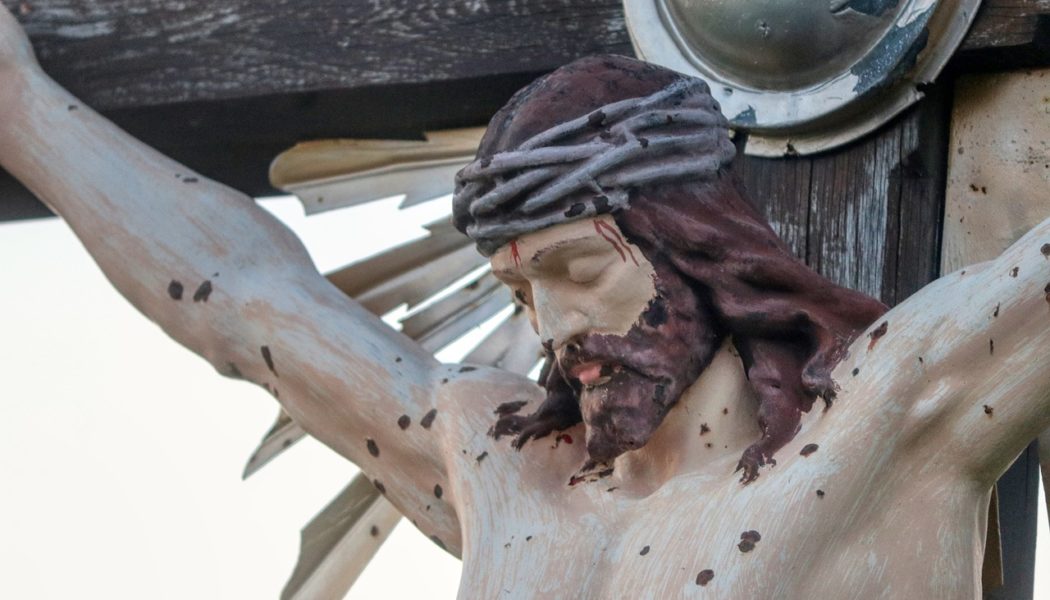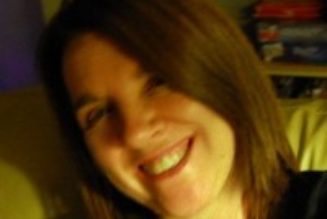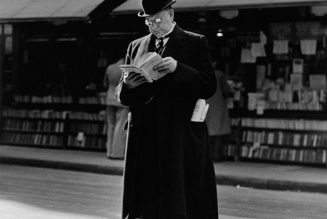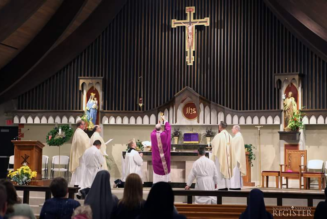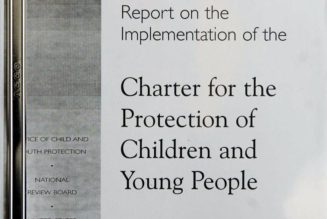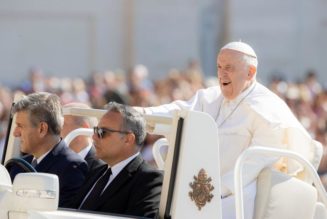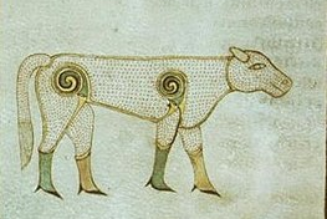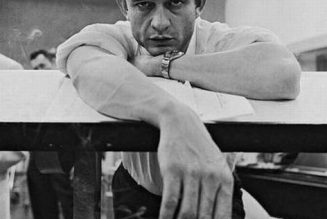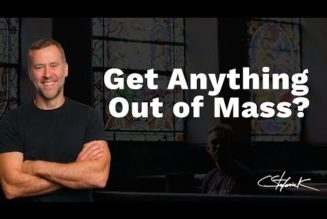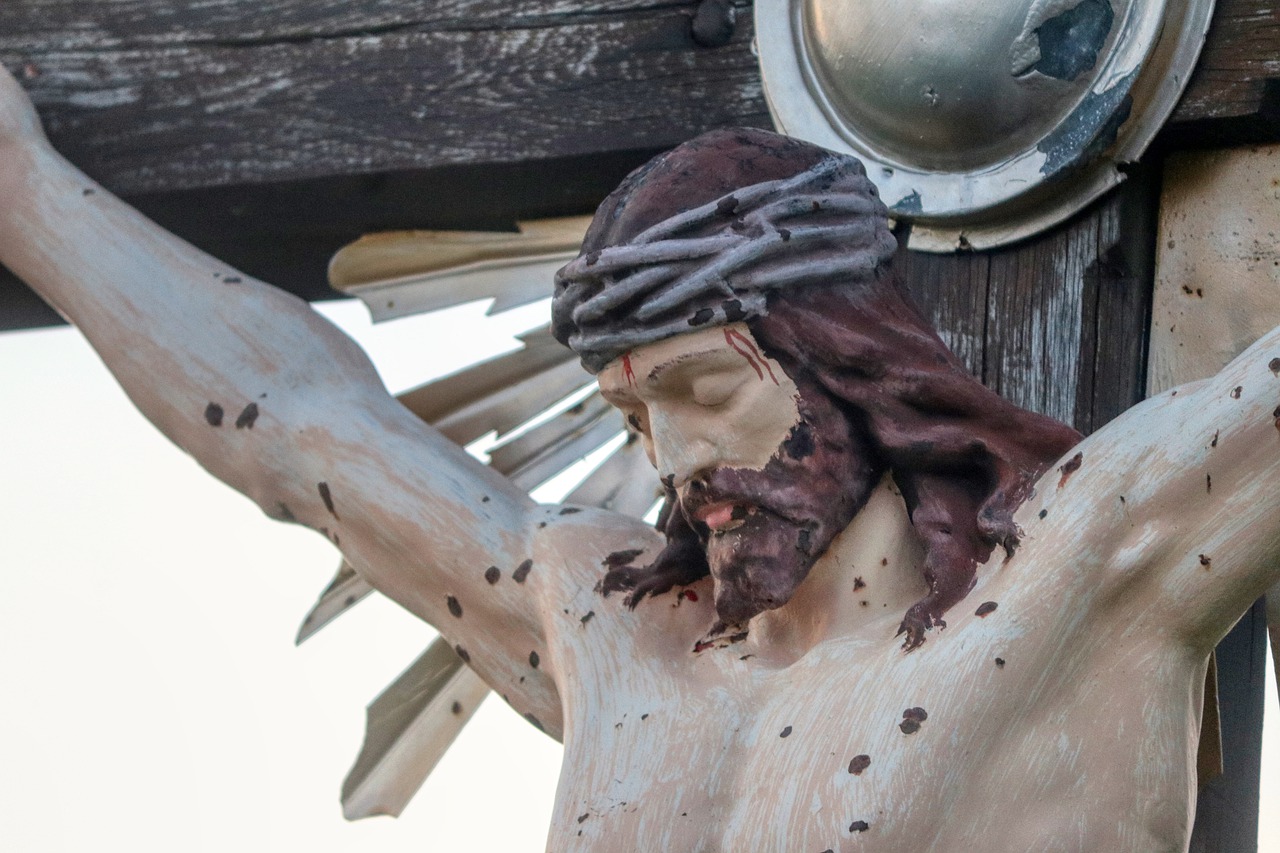
I was baptized Christmas Eve 2001. I was six years old, and my family was very active in our local Baptist church in Largo, FL. We were members of a homeschooling co-op group in our church, so we were often there multiple times each week. At home and in our Sunday school class, the stories of Scripture were recounted to me, and I was taught to memorize important Bible verses. I developed a deep love of God’s Word and was instilled with a zeal for evangelism. I wanted to talk about Jesus with anyone who would listen.
I entered the public school system in fifth grade, and the following year my family moved to Tennessee, the “buckle of the Bible Belt.” Two unfortunate and, these days, increasingly common things happened to me during middle school: I developed an addiction to pornography, and my parents got divorced. After that, my family stopped going to church, and I was very upset: I remember crying and wondering why we no longer went.
Toward the end of middle school, I made friends with some of my atheist peers (probably all three of them — there weren’t very many in small town Tennessee). In my zeal, I attempted to evangelize them, but the discussions we had ultimately caused me to question my beliefs — not my theological beliefs so much as my scientific ones. I had been raised to believe in Young Earth Creationism, and my friends presented me with many compelling arguments against my fundamentalist interpretation of the Genesis creation narrative. It seemed there was a mountain of evidence that the earth was much more than a few thousand years old, and apparently this lent a great deal of credibility to the theory of evolution. I decided that I would dedicate the summer before I entered high school to researching the matter.
It didn’t take long for my Young Earth Creationist views to fall apart. I felt as though I had been duped. If I was wrong about this, what about Christianity as a whole? I decided to dig deeper. It was 2010, and the New Atheist movement was at its peak. I soon came across names like Sam Harris, Richard Dawkins, and Christopher Hitchens and spent the rest of the summer devouring their books and watching their debates and lectures online. By the time I entered high school, I had apostatized. More than that, I had become an “evangelical” atheist, dedicated to helping others realize that they, too, had been hoodwinked. The New Atheists had convinced me that Christianity was not only naive and unscientific, it was outright dangerous and delusional. I felt it my duty to proclaim the “good news” that religion was bogus and that we in the modern era needn’t be bound by its fetters any longer.
Shortly after that, I also adopted a sex, drugs, and rock ’n roll type mentality. My increasingly degenerate lifestyle only served to set me even more at odds with Christianity and its seemingly prudish and restrictive morality, from which I felt I had been liberated.
However, these carnal distractions didn’t put an end to my intellectual pursuits. I continued my studies, always looking for more ammunition to use in debates with my Christian peers. During high school, I often sought out and participated in such debates. I found the argument from the Problem of Evil to be quite successful and was able to convince a number of my peers to abandon their faith. Thus emboldened, I steadily ramped up my proselytization, which soon devolved into outright mockery of the Christian Faith.
When my school announced that we would have a fictional character costume day as part of our “spirit week,” leading up to the prom my sophomore year, I couldn’t resist. I had to go dressed as Jesus Christ. I arrived at school clad in bedsheet robes, crowned with a paper halo and bearing sharpie marker stigmata. I was promptly confronted by the Head Principal, Assistant Principal, and School Resource Officer and instructed to remove my costume. After some resistance, I relented. However, that evening I contacted the Freedom From Religion Foundation, recounting the day’s events and informing them that I felt my First Amendment rights had been violated.
The FFRF responded by awarding me a one thousand dollar scholarship for my activism, publishing my story in their newsletter and sending a strongly worded letter to my school district with threats of legal action. Shortly thereafter, the local Channel Four News offered to interview me, and I gladly accepted. Numerous online media publications began sharing my story. I was experiencing my fifteen minutes of fame, which would ultimately be the peak of my militant anti-theism.
But I began to feel the need for more. I started to feel that my whole worldview was based on a simple rejection of Christianity and wanted something more fulfilling, more holistic.
At first, I tried to cobble together my own system of spirituality, drawing from existentialist philosophy, particularly the writings of Albert Camus, and pagan mythology. I was strongly attracted to the Egyptian crocodile god of the Nile, Sobek, a hedonistic deity known as “he who eats while he also mates.” I went so far as to take Sobek as a sort of patron anti-saint during an occultic ceremony I celebrated alone by the creek near our house.
However, this little charade didn’t do much to resolve the interior emptiness I was feeling with ever greater frequency. I tried to distract myself with more drugs and entertainment, but these only exacerbated my depression. The next year, I dropped out of high school, leaving me with even more time to spend in “vanity and a striving after wind” (Ecclesiastes 1:14). My emotional state reached its lowest point after my mom was evicted from our townhouse, forcing us to move back to Florida and away from all of my friends.
Now a lonely, depressed, unemployed high school dropout, porn addict, and pothead, I remember telling my younger brother that if my situation didn’t drastically improve soon, I would most likely kill myself.
This was when I started second guessing my beliefs. I kept having this nagging feeling: “maybe you’re wrong about Christianity,” which was strange, because I was entirely sure that I was not, in fact, wrong about Christianity. However, the feeling persisted, so I ran with it. I decided to challenge God: “I’m pretty sure you don’t exist,” I prayed, “but if You do, now would be the time to show me. If You don’t, You will never get another chance. If You don’t answer me now, I’ll never second guess myself again, and I’ll probably be dead soon, anyway.” I resolved to pray a similar prayer every day, to re-read the New Testament, and see what happened.
Over the next few months, I experienced a long series of “God-incidences.” I would say my challenge prayer and read a bit of the New Testament. Then, immediately after I put the Bible down, something would happen that was directly related to the passage I’d just finished reading — all of this despite the fact that I had told no one what I was doing. This went on for weeks on end, so I can’t tell the story of every such God-incidence here, but I will share one memorable occasion.
It was the Fourth of July, and I had just finished reading Matthew 7:6 (“Do not give dogs what is holy…”). The second my Bible hit the desk, there was a knock at the door. It was my next door neighbor, inviting me to his family’s cookout. As soon as I entered their yard, his father addressed me: “Jeff, I hope you’re hungry. Otherwise, we’ll have to throw this food to the dogs.”
After a few months of experiencing such situations, I decided it might be worth the effort to “give Christianity a try.” In a worst case scenario, I would quickly realize it was a silly thing to do, and nobody would have to know I’d had a momentary lapse in judgment.
On the night of October 15, 2014, I prayed to God again, this time in a much different tone: “God, I’m still not quite sure how or why it’s true, but I’m open to believing that it’s true that You exist. Please accept me back as Your son, and forgive my sins.”
Immediately, I felt as though a tremendous weight had been lifted from my shoulders.
I decided that I would have to renounce any affiliation with my patron “anti-saint,” Sobek, and I thought it would be appropriate to replace him with an actual patron saint. I did a bit of research online and came across the story of St. Genesius of Rome, a pagan who wrote and performed plays mocking Christianity, only to have a miraculous conversion during one of his satirical baptism scenes. He was martyred at the order of Emperor Diocletian after he began preaching from the stage (this time, for real). I figured he was a fitting choice. Perhaps he, too, had dressed like Jesus during his plays, as I had for that fictional character day.
Still somewhat unsure of my new path, I turned in for the night. That night I had the most intense, vivid dream ever in my life. To this day, it’s the only one that I’ve been able to remember in its entirety: I was walking along the sandy shoreline of a vast river, when suddenly, a massive crocodile emerged from the water at speed. Snapping at me, he pursued me as I fled. Panicked, I tripped and fell face first. I started to rise up, looking over my shoulder and expecting to see the beast at my heels. Instead, he was cowering, retreating back frantically into the water, tail between his legs. When I got to my feet, I noticed a shining angelic figure at my side, and it was clear that his presence was repelling the monster.
I awoke, astonished by how clear the symbolism of my dream was: God, through His angel, was protecting me from Sobek, who represented my former life of sin. Actually, I was shocked I had dreamt anything at all. Years of drug abuse had rendered virtually all of my nights dreamless. I couldn’t remember the last time I had a dream, let alone such an intense and meaningful one. I interpreted it as a profound confirmation of my conversion. I was now certain that I had indeed been wrong about Christianity.
But I still wasn’t quite sure how Christianity made sense, or which kind of Christianity I should believe. I knew I didn’t want to return to the form of faith I had rejected years earlier. The question was, where should I go?
My friends back home were incredulous when I told them I’d converted. Most thought I was joking, although some had questions. And I didn’t have answers — yet.
I embarked on a deep dive into Christian theology and history, researching all of the different traditions and denominations. I looked online for book recommendations. The first two I read were Søren Kierkegaard’s Training in Christianity and the Confessions of St. Augustine of Hippo. These two texts radically altered my perception of Christianity. It became clear to me that the Christianity I had rejected wasn’t the true Christianity. Next I devoured anything I could find by G.K. Chesterton and C.S. Lewis. Christianity was making more sense by the day, but I still had one question: where should I go to church?
While I had been reading, I had been visiting different non-denominational churches that weren’t much different from the ones in which I had been raised. One night, at a Bible study, I asked the small group leaders if they had any sort of material they could recommend to help me understand what their church taught, some sort of catechism. They looked at me like I had three eyes. Why would I want anything besides the Bible to study? This was quite a disenchanting response. I knew I needed to look elsewhere.
Through my reading and the many conversations I was having in online Christian forums, I had developed an interest in Catholicism and Eastern Orthodoxy. I found their historical pedigrees and their rich theological traditions appealing. I even started praying the Rosary and the Jesus Prayer. However, as a recovering anti-theist, I still wasn’t quite ready to jump into “organized religion.” I had many lingering, more liberal beliefs about things, like gay marriage, that I wasn’t prepared to relinquish quite yet. I expressed these sentiments in my online communities and was directed to the Church of England. I resolved to visit the local Episcopal parish that Sunday.
It turned out to be a very high church, Anglo-Catholic type parish — smells, bells, and altar rails. I was blown away by my first experience of liturgical worship. Afterwards, the congregation greeted me enthusiastically. (It probably didn’t hurt that I was at least thirty years younger than anyone else in attendance.) One of the parishioners gave me a tour of the building and told me all about the history of Anglicanism, how it was a “middle way” between Catholicism and Protestantism. The vicar took me out to lunch, where we discussed my conversion from atheism. By the end of the day, I was feeling quite at home.
However, in the coming weeks I would repeatedly be told that the members of this parish weren’t “like those Episcopalians,” and that, in fact, they were “more Catholic than the Roman parish down the street.” I was taken back to my time as an atheist, when I began feeling the desire for a worldview that had more substance than a mere rejection of Christianity. It seemed that these Episcopalians defined themselves not only by their rejection of Rome, but also by their rejection of Episcopalianism. I wasn’t a Christian because it wasn’t atheism or wasn’t Islam, and I didn’t think I wanted to join a church that was based on not being like this or that church.
As I continued my studies and my online discussions, I noticed that really the only Christian group who didn’t largely define themselves in opposition to another Christian group, were the Catholics. Everyone else was always explaining why they weren’t Catholics. Orthodox didn’t like the filioque or the papacy, Protestants didn’t like … well, it depended which Protestants you asked. Catholics, on the other hand, were always just explaining why they were Catholic. And the more Catholic explanations I heard, the more sense they made.
In fact, I didn’t really have the experience many Protestants have when considering conversion to Catholicism. I never struggled with accepting any of the uniquely Catholic doctrines, because I wasn’t looking at Catholicism through a Protestant lens, I was looking at it as a former atheist. I didn’t have any particular attachment to ideas like sola Scriptura, I had no reservations about Mary — quite the opposite. I found the Catholic teachings about Mary, the sacraments, the papacy, apostolic succession, etc., not only easy to accept, I was excited at the prospect that they might be true — and even more thrilled when I came to believe that they probably were.
My main problem was that Catholicism would leave me no wiggle room in other areas. By now I had become a convinced universalist, and I felt that the Catholic teaching on gay marriage and sexual morality were oppressive. But everything else the Church taught made too much sense to ignore: the scriptural and historical case for the authority claimed by the Catholic Church seemed to be solid, and if the Church actually had the authority she claimed, it meant that wherever there might be a disagreement, she was right and I was wrong.
Around this time, I started a new job, one which allowed me to listen to podcasts for the first five hours of my shift every morning. I spent all five hours, five days a week, listening to podcasts like Catholic Answers, Pints with Aquinas, The Art of Catholic, etc. It didn’t take long for my remaining qualms about Catholicism to be resolved. I then realized that I needed to start going to Mass and begin the RCIA process. So I did.
When I told one of my Protestant friends back in Tennessee that I had joined RCIA, he asked his youth pastor to try to convince me not to “swim the Tiber.” Over the coming months, this friend and I would become close, spending hours every day debating theology. He threw my way every objection to Catholicism that he could find. Thanks to his efforts, I ended up delving much deeper into Catholic apologetics than I would have done otherwise, and as a result, my desire to join the Church only grew.
This was also the period when I met the woman who would become my wife, Britany. She was also raised Baptist but went to a Catholic university. In our first conversation, I told her everything I’d been learning about typology, particularly concerning Mary as the New Eve, the Ark of the New Covenant, and Queen of Heaven. Once we started dating, she agreed that if we got married and had children, we would raise them Catholic. She also started coming to my RCIA classes and attending Sunday Mass with me. We got engaged the month before I was to be received into the Church.
As I prepared to enter the Church at the upcoming Easter Vigil, it was time to do my first confession. I entered the confessional with a long list of sins, many of them grave, and left with a clean conscience. My first experience of the Catholic sacraments was honestly miraculous. The addiction to pornography that I had been struggling with since middle school literally vanished in an instant. I no longer felt any desire to consume pornography, and thanks be to God, I still don’t.
I made my profession of faith, was received into the Catholic Church, and made my first Holy Communion on April 15, 2017. Easter Vigil was one of the most beautiful and moving nights of my life. Fifty days later, I was confirmed on Pentecost Sunday in the Cathedral of the Diocese of Venice, FL. I took as my confirmation Saints Genesius of Rome and Louis de Montfort, the latter being known as the Apostle of Mary.
On Christmas Eve that year, the sixteenth anniversary of my baptism, my then fiancée gave me the best gift I could have asked for. She told me she too wanted to become Catholic. She was received into the Church the following Easter Vigil, confirmed on Pentecost, and less than a week later we were married.
Having gone from being an evangelical Baptist to an “evangelical” atheist, I am now an evangelical Catholic, dedicated to sharing my story and the beauty of the Catholic Faith with anyone who’s willing to listen. As a result, in the last two years, I have had the honor of being the confirmation sponsor for three of my Tennessee friends.
I also received the tremendous honor of becoming a father, when my wife and I were blessed with a daughter, Hannah, who was born and baptized in the summer of 2020.
A year later, her younger brother, Benjamin, was born prematurely, baptized, and died on June 11th, 2021, the Solemnity of the Most Sacred Heart of Jesus. In our loss, my wife and I received great consolation from the Church and from our Catholic faith, which assures us that our son is now a saint in Heaven, interceding for us and for his older sister.
So, that is my story. By the grace of God, I was able to go from wayward son to father of a saint — from mocking Jesus to worshiping Him.
Join Our Telegram Group : Salvation & Prosperity
